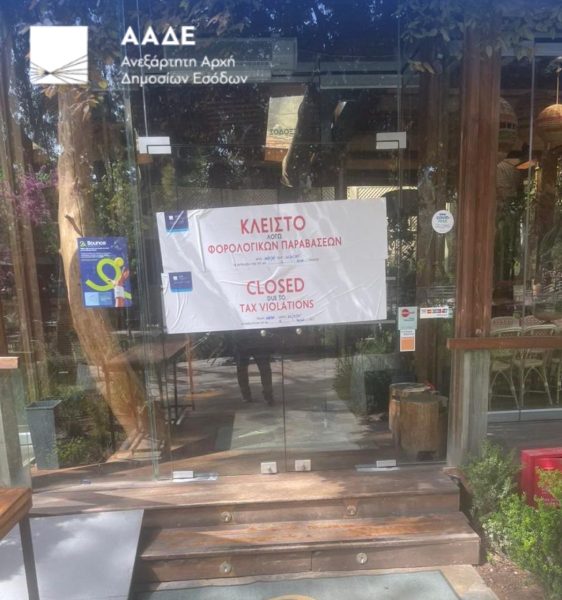
Parliament is expected to vote on a draft bill this week that will set out the framework to finally allow Greek citizens abroad to vote from their place of residence without a physical presence at polling stations in Greece. Introduction of a postal or mail-in vote is a historic step towards voter equality. Allowing Greek citizens abroad the right to vote from their permanent or temporary residence has the ability to completely alter for the better the relationship between the Diaspora with the Greek state.
Last year was the first time that expatriate Greeks were allowed to vote in a general election from abroad. As such, 22,764 registered to vote in the national election in June 2023. Now, with voting registration limitations set to be eliminated and voting by mail established, the Diaspora has a real chance to voice its opinion at the ballot box.
Nevertheless, such initiatives should not stop only at the legislative level: A major emphasis must be placed so that all expatriate Greeks are informed and encouraged to exercise their basic democratic right.
Mapping the Greek Diaspora
The first step in getting members of the Greek diaspora to vote is identifying them. Currently, the Greek state does not know how many Greeks live abroad and where they are located. Creating an exhaustive database is imperative, not only for the purposes of voting but also for use in times of crisis (like the recent pandemic or the war in Ukraine). Above all, it would show that the homeland cares about its citizens worldwide.
Such a database can be created by collating information from other existing databases (e.g. Tax Residents abroad, students on Fulbright fellowships abroad). In addition, in countries where the legal framework and technology allow it, like the US, the most effective way to identify the Greek diaspora is through modern technological tools such as Artificial Intelligence. These tools can retrieve information parsing through social media, web pages and other sources in the public domain using as a search key, for example, a Greek surname. The cost of those tools does not exceed a few tens of thousands of dollars and are the most cost-effective way to create a diaspora database needed for an unmediated communication between the Greek state and the diaspora.
Information Campaigns through Diaspora organizations
A second way that the Greek state has at its disposal to communicate with the Greek diaspora, is through the various expatriate groups. There are more than 3,000 diaspora organizations around the world – they can be religious, cultural, academic, student or business organizations, as well as schools, and other institutions. All of these organizations have databases of their members and could greatly assist the effort of the Greek state to inform the Greek diaspora for the Postal Vote and other initiatives which aim to preserve and strengthen Hellenism. In this context, the local dioceses of the Greek Orthodox Church can also be proven very useful. The Church has a vibrant extensive network of Greek communities worldwide that can be employed for this national goal helping to reach the message especially those who do not have frequent access to the internet.
Advertising through personalities
Another way of informing Greeks abroad about the Postal Vote is through the “recruitment” of Greek diaspora personalities with great recognition from the scientific, social, sport, and art world that do not have a political affiliation such as Giannis Antetokounmpo, Tom Hanks, George Lanthimos etc. A 10-second video of Giannis “scoring” at a ballot box posted in his social media is equivalent to countless hours of expensive advertising time.
Seamless registration on an e-platform
Last but not least, it is important that registration on the platform is seamless, so that voters are not discouraged by bureaucracy. In that spirit, our institute proposed that authentication for registration be available through identity card and/or passport number – a proposal that is now included in the proposed law (article 8). This is not only fully compatible with the current legal framework, as during in-person voting the voters are identified through an identity card or passport, but also avoids issues of authentication that existed in the past (e.g. different spelling of names between taxisnet (the tax bureau’s platform) and the electoral catalogs)
Similarly, people looking to register should have the option to connect with a representative to help them in case they face any challenges. This can be done through an email, a chat option – which can also be AI enabled – or a call center. Lastly, consulates and embassies can set up two or three information sessions for people interested in registering.
Adopting the postal vote as a way of facilitating the participation of the Greek diaspora in Greek elections from abroad is an essential step towards the integration of the Greek diaspora into the life of the nation. This step must be accompanied by a holistic national plan for the Hellenic diaspora in which all interested parties should be able to submit their proposals and ideas. After all, if we want the Greeks who left during the 10-year financial crisis to return, we need to make it easier for them to decide on the future of their country through their fundamental democratic right – the vote.
*George Laskaris is the President of Deon Policy Institute. He holds a BSc from the National Technical University of Athens, a PhD from Duke University, and has been a postdoctoral researcher at Stanford University, and Massachusetts Institute of Technology, all in Nuclear Physics.
Source: tovima.com
Latest News

Hellenic Food Authority Issues Food Safety Tips for Easter
Food safety tips on how to make sure your lamb has been properly inspected and your eggs stay fresh.

Greek Kiwifruit Exports Smash 200,000-Ton Mark, Setting New Record
According to data by the Association of Greek Fruit, Vegetable and Juice Exporters, Incofruit Hellas, between September 1, 2024, and April 17, 2025, kiwifruit exports increased by 14.2%.

Easter Tourism Boom: Greece Sees 18.3% Surge in Hotel Bookings
Among foreign markets, Israel has emerged as the biggest growth driver, with hotel bookings more than doubling—up 178.5% year-on-year.

Greece to Launch Fast-Track Tender for Offshore Hydrocarbon Exploration
Last week, Papastavrou signed the acceptance of interest for the two Cretan blocks, while similar decisions regarding the two Ionian Sea blocks were signed by his predecessor

American-Hellenic Chamber of Commerce to Open Washington D.C. Branch
AmCham's new office aims aims to deepen U.S.-Greece economic ties and promote investment and innovation between the two countries

Why Greece’s New Maritime Spatial Plan Is a Geopolitical Game-Changer
This landmark development is more than just a bureaucratic step — it's a strategic declaration about how Greece intends to use, protect, and assert control over its seas

Eurozone Inflation Eases to 2.2% in March
Compared to February, inflation decreased in 16 member states, remained unchanged in one, and rose in ten.

Bank of Greece: Primary Gov. Surplus €4.1b Jan.-March 2025
The data released today by the Bank of Greece revealed that the central government’s overall cash balance recorded a surplus of €1.465 billion in the first quarter of 2025, compared to a deficit of €359 million in the corresponding period of 2024.

Greek Government Reissues 10-Year Bond Auction for €200 Million
The amount to be auctioned will be up to 200 million euros, and the settlement date is set for Friday, April 25, 2025 (T+5)

Greece Defines Continental Shelf Limits and Maritime Zones in Landmark EU Document
The Maritime Spatial Planning (MSP) framework represents a comprehensive approach to spatial planning and is crucial for the successful development of a blue and circular economy








![Πλημμύρες: Σημειώθηκαν σε επίπεδα ρεκόρ στην Ευρώπη το 2024 [γράφημα]](https://www.ot.gr/wp-content/uploads/2025/04/FLOOD_HUNGRY-90x90.jpg)

































 Αριθμός Πιστοποίησης
Αριθμός Πιστοποίησης